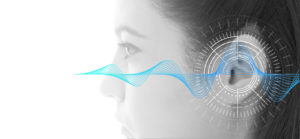Tinnitus has been one of those health issues that over the years, I have come to accept I have very little to offer my patients. While ginkgo has shown up previous to this study, as a potential option, I was eager to read this study for any renewed hope for it.
Patients have the experience of persistent or recurrent sounds, without sound actually occurring. Most individuals with tinnitus also have some hearing loss, and thus, hearing aids are often prescribed. One of the thoughts as to causation of some cases of tinnitus with hearing loss is that there is a decrease in cerebral blood flow. This is where Ginkgo comes into the picture, because Ginkgo leaf can increase cerebral blood flow and thus, may help treat some cases of tinnitus; however, in the past, clinical trials evaluating ginkgo for the treatment of tinnitus have not reported consistent results. The current randomized, double-blind, controlled, three-arm study assessed the effect of ginkgo and/or hearing aids on tinnitus in patients with hearing loss.
Patients at an average age of 56 were recruited in 2015 at an audiology clinic in Rondonópolis, Brazil. To be included in the study, patients had tinnitus, either one sided or bilateral, for at least three months, and some degree of hearing loss.
The 33 patients were randomly assigned to receive either 240 mg/day ginkgo (EGb 761) or hearing aids; and a third group receiving ginkgo and hearing aids, for 90 days. . The EGb 761-type ginkgo extract contained 24% flavonoid glycosides, 6% terpenoid trilactones, and 5-10% organic acids.
The study’s primary outcome was the mean change score after 90 days of treatment for the 25-item Tinnitus Handicap Inventory (THI); the effect of tinnitus on quality of life, and the visual analog scale (VAS) scores for the degree of discomfort and intensity of symptoms. The secondary outcome was the mean percentage of THI change score in relation to the duration of tinnitus. Assessments were done at baseline and after 90 days of treatment.
Mean THI scores significantly decreased in all three groups. Mean VAS scores decreased in all three groups, but only the change score for the hearing aid group reached statistical significance. The mean THI and VAS change scores did not significantly differ among groups. There was no significant correlation between tinnitus duration and THI or VAS score. However, it was seen that in those who had tinnitus <58.9 months, hearing aids were significantly more effective; ginkgo was equally effective regardless of tinnitus duration.
Commentary: According to this study, ginkgo and/or hearing aids reduce the severity and loudness of tinnitus. Two obvious limitations of the study is the small study sample and the lack of a placebo group. Despite these limitations, this study will reignite my interest in revisiting the potential of ginkgo, and this dose, 240 mg/day, in decreasing tinnitus in my patients who are suffering as a result of it.
Reference: Radunz CL, Okuyama CE, Branco-Barreiro FCA, Bereira RMS, Diniz SN. Clinical randomized trial study of hearing aids effectiveness in association with Ginkgo biloba extract (EGb 761) on tinnitus improvement. Braz J Otorhinolaryngol. June 18. 2019.


